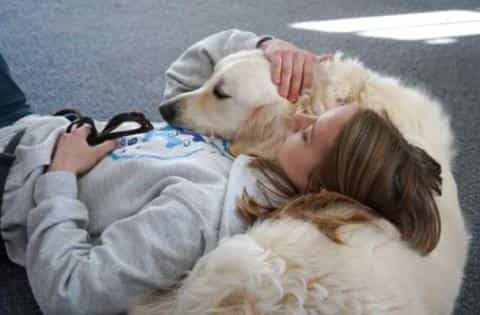
Published on April 4 by Julia
Dogs are social animals who thrive on companionship. For some, being left alone—even for a short time—can trigger panic, fear, and destructive behavior. This condition, known as separation anxiety, affects many dogs and their families. But the good news? It’s manageable with patience, training, and the right tools.
Here’s how to help your dog feel more secure when you're not around.
Separation anxiety is a behavioral disorder where a dog experiences extreme distress when separated from their owner or family. Symptoms can include:
Some dogs may even start showing signs of anxiety before you leave—like when you pick up your keys or put on your shoes.

Start by leaving your dog alone for just a few minutes and gradually increase the time. This desensitization helps them learn that you always come back.
Keep arrivals and departures low-key. Too much excitement can build anticipation or stress. Try ignoring your dog for a few minutes before leaving and after returning home.
Food-dispensing toys like Kongs, snuffle mats, or lick mats keep your dog mentally engaged while you’re gone. They can help replace anxiety with focused, positive activity.
A tired dog is a calm dog. A long walk, game of fetch, or training session before leaving can burn off excess energy and reduce anxiety.
Set up a “zen zone” with your dog’s bed, toys, and maybe an item of your clothing for scent comfort. Some dogs do well in crates, while others prefer a gated room.
Soft music, a white noise machine, or dog-specific playlists (like Through a Dog’s Ear) can mask outside sounds and provide a sense of calm.
Consider natural calming aids like:
Always check with your vet first.

Your dog isn’t being “naughty”—they’re scared. Punishing anxiety-driven behavior will only worsen the problem and damage your bond.
If your dog struggles to be alone for extended periods, having a trusted sitter visit or enrolling them in a daycare a few days a week can be a huge help.
If your dog’s anxiety is severe or worsening, consult a certified dog trainer or veterinary behaviorist. They can tailor a behavior modification plan or recommend anti-anxiety medication if needed.
Separation anxiety doesn’t go away overnight, but with steady support and understanding, your dog can learn to feel safe while you’re away. It’s not about “fixing” your dog—it’s about helping them feel confident and secure, even when you're apart.
Discover More Content





